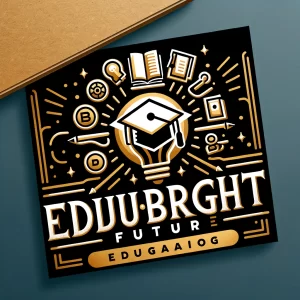Introduction
In the current job market, where technology and specialization often dominate discussions about career preparation, a liberal arts education holds significant value. It equips students with a broad range of skills and a flexible mindset, preparing them for a variety of careers. Despite the growing emphasis on technical proficiency, the foundational skills gained through a liberal arts education are increasingly recognized as crucial for long-term professional success.
Understanding Liberal Arts Education
Liberal arts education focuses on broad-based learning across disciplines including literature, sciences, arts, and social sciences. Unlike specialized programs, liberal arts aim to develop well-rounded individuals with critical thinking, problem-solving, and effective communication skills. This educational approach emphasizes intellectual curiosity, ethical reasoning, and a global perspective, fostering versatile and adaptive thinkers.
Core Components of Liberal Arts Education
- Critical Thinking and Analysis: Courses are designed to challenge students to think deeply and critically about various subjects.
- Communication Skills: Emphasis on writing, speaking, and presenting ideas clearly and persuasively.
- Interdisciplinary Learning: Encouraging the integration of knowledge across different fields, promoting a holistic understanding of complex issues.
- Cultural and Ethical Awareness: Understanding diverse perspectives and ethical considerations in a global context.
Relevance in the Modern Job Market
Adaptability
With rapid technological changes and economic shifts, the ability to adapt is crucial. Liberal arts graduates excel in this area due to their broad educational backgrounds. Their exposure to various disciplines equips them with the flexibility to navigate and thrive in diverse professional environments.
Critical Thinking
Employers value employees who can think critically and approach problems from various perspectives. Liberal arts education fosters analytical skills and the ability to evaluate information critically, enabling graduates to tackle challenges creatively and effectively.
Communication Skills
Effective communication is essential in any field. Liberal arts courses emphasize writing and speaking, skills that are highly sought after by employers. Graduates are trained to articulate their ideas clearly and persuasively, making them effective team members and leaders.
Interpersonal and Collaborative Skills
Liberal arts education often involves collaborative projects and discussions, helping students develop strong interpersonal skills. The ability to work well with others, understand different viewpoints, and contribute to a team is highly valued in the workplace.
Liberal Arts and Technology Integration
Combining liberal arts education with technical skills can create a powerful blend that is increasingly appealing in the workforce. Many colleges are now offering interdisciplinary programs that include both STEM and liberal arts courses. This integration allows students to develop technical expertise while retaining the broad-based, critical thinking approach of liberal arts.
Examples of Interdisciplinary Programs
- Digital Humanities: Combines computing and the humanities to analyze and interpret cultural artifacts using digital tools.
- Environmental Studies: Integrates science, policy, and ethics to address environmental challenges.
- Business and Communication: Merges business acumen with communication skills, preparing students for leadership roles.
Challenges and Opportunities
Misconceptions about Liberal Arts Degrees
A major challenge is the misconception that liberal arts degrees do not lead to profitable careers. However, the versatility of the skills acquired allows graduates to pursue opportunities in multiple fields, from education and business to technology and the arts. Employers increasingly recognize that the critical thinking, communication, and problem-solving skills honed in a liberal arts program are invaluable.
The Role of Career Services
Effective career services can help bridge the gap between liberal arts education and career opportunities. By providing resources, networking opportunities, and guidance, colleges can help liberal arts graduates translate their skills into successful careers.
Embracing Lifelong Learning
Liberal arts graduates are often well-prepared for lifelong learning. Their education instills a love for learning and the ability to continually adapt and grow professionally. This mindset is particularly beneficial in today’s fast-paced job market, where continuous skill development is essential.
Conclusion
Liberal arts education remains a vital part of higher education, providing essential skills that prepare students for professional and personal success in a dynamic world. The ability to think critically, communicate effectively, and adapt to change is more important than ever. As the job market continues to evolve, the broad-based, versatile education provided by liberal arts programs will continue to be highly valued. By embracing both the depth and breadth of their education, liberal arts graduates are well-positioned to navigate the complexities of the modern professional landscape and contribute meaningfully to their chosen fields.
